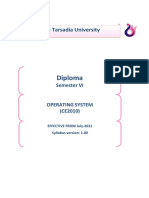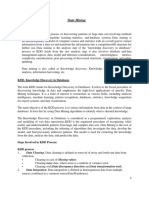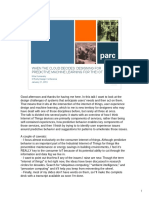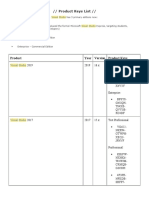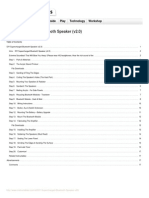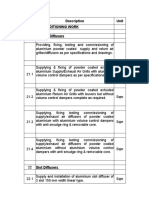0% found this document useful (0 votes)
12 views10 pagesCourseHandout OS
The document outlines the course details for 'Operating Systems' (INT2201) offered by Manipal University Jaipur's Department of Information Technology for the IVth Semester B.Tech program. It includes course objectives, outcomes, assessment plans, and a detailed syllabus covering key topics such as process management, memory management, and file systems. The course aims to provide students with a comprehensive understanding of operating system principles and their applications in software development.
Uploaded by
Aditi JaiswalCopyright
© © All Rights Reserved
We take content rights seriously. If you suspect this is your content, claim it here.
Available Formats
Download as DOCX, PDF, TXT or read online on Scribd
0% found this document useful (0 votes)
12 views10 pagesCourseHandout OS
The document outlines the course details for 'Operating Systems' (INT2201) offered by Manipal University Jaipur's Department of Information Technology for the IVth Semester B.Tech program. It includes course objectives, outcomes, assessment plans, and a detailed syllabus covering key topics such as process management, memory management, and file systems. The course aims to provide students with a comprehensive understanding of operating system principles and their applications in software development.
Uploaded by
Aditi JaiswalCopyright
© © All Rights Reserved
We take content rights seriously. If you suspect this is your content, claim it here.
Available Formats
Download as DOCX, PDF, TXT or read online on Scribd
/ 10








































